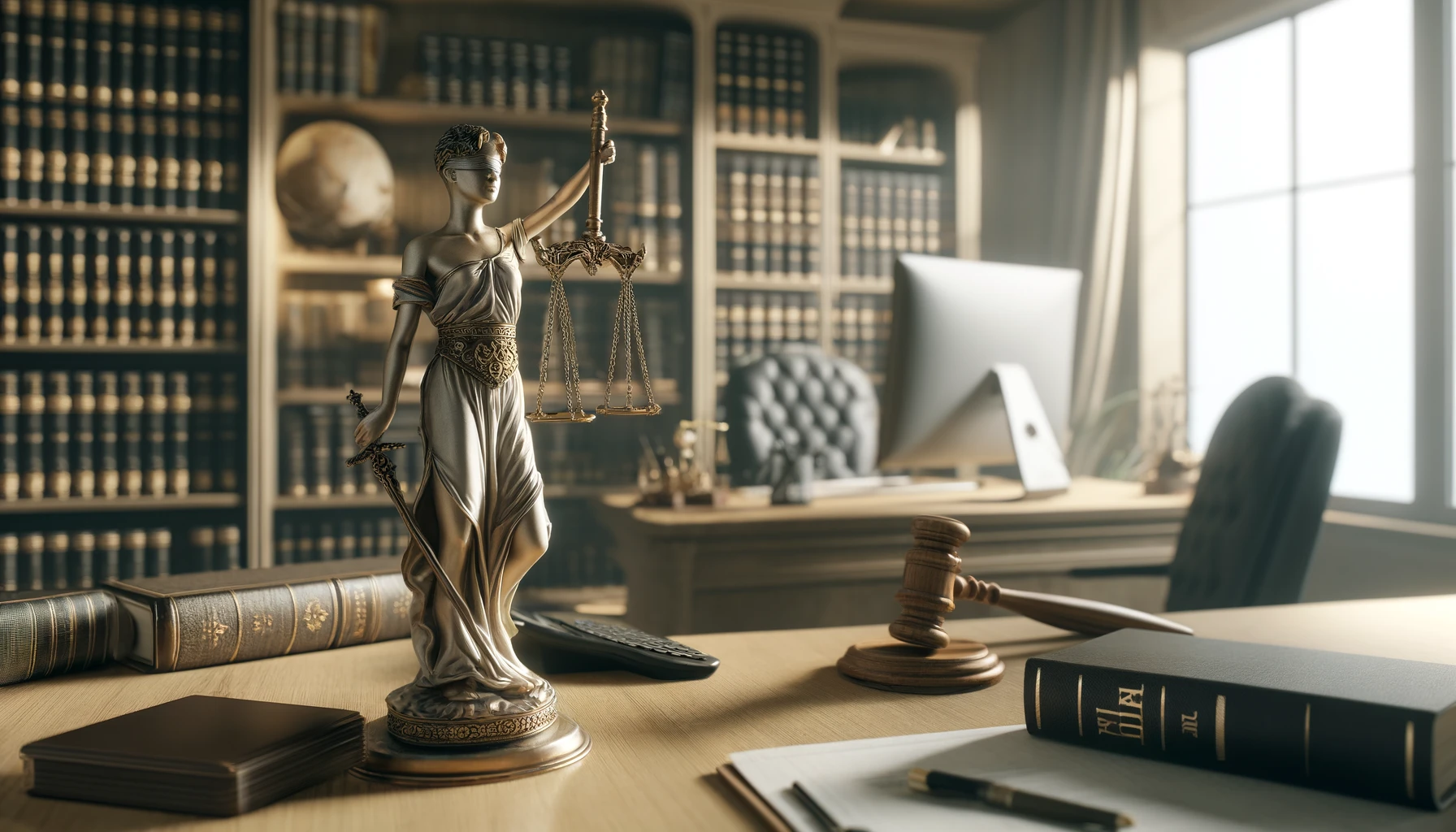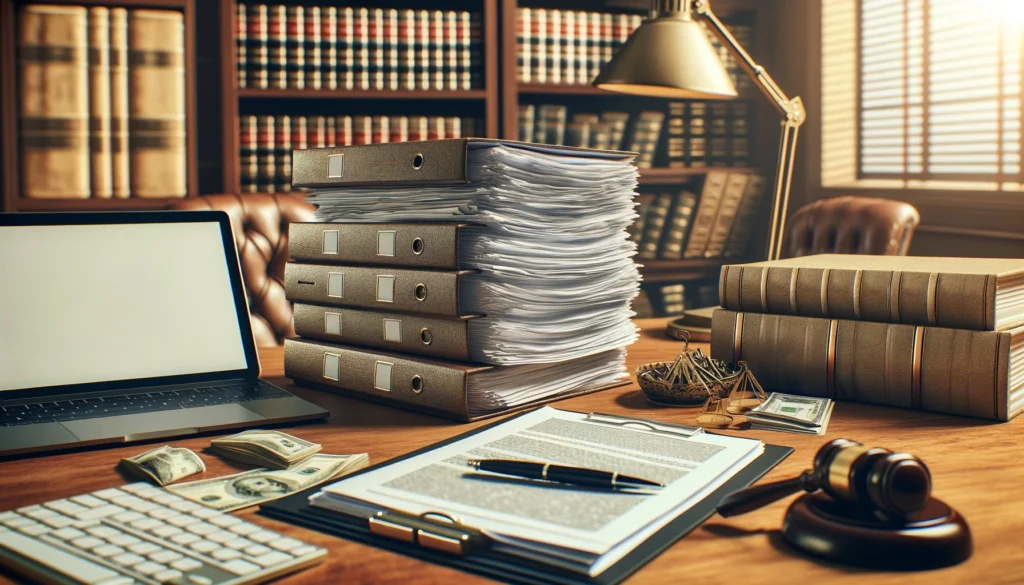
Introduction
In the rapidly evolving landscape of legal technology, paralegals and legal professionals are continually seeking innovative tools to streamline their work and enhance efficiency. One such tool that has recently garnered significant attention is ChatGPT, a powerful language model capable of understanding and responding to complex prompts. This article aims to guide paralegals on how to leverage ChatGPT to navigate the intricate process of personal injury settlement calculations.
Personal injury settlement calculations are a critical aspect of a paralegal’s work, requiring meticulous attention to detail and a deep understanding of various factors that can influence the final settlement figure. The process can be time-consuming and complex, often involving the calculation of both economic and non-economic damages, analysis of precedents, and consideration of negotiation factors.
Enter ChatGPT. This advanced language model can assist paralegals in these tasks, providing quick and accurate responses to complex queries. By harnessing the power of ChatGPT, paralegals can expedite their work, reduce the risk of errors, and focus more on strategic aspects of their cases.
In this article, we will delve into the best five prompts that paralegals can use to navigate personal injury settlement calculations with ChatGPT. We will also provide practical tips and techniques to optimize the use of this tool in a legal setting. As we explore these prompts, we hope to illuminate the potential of ChatGPT and other language models in transforming the way paralegals approach their work.
Next, we will provide a brief overview of personal injury settlement calculations to ensure a solid foundation for understanding the subsequent sections.
Understanding Personal Injury Settlement Calculations
Before delving into the specifics of how ChatGPT can assist with personal injury settlement calculations, it’s crucial to understand the basics of this process. Personal injury settlement calculations aim to quantify the damages suffered by a plaintiff due to the negligence or wrongdoing of the defendant. These calculations are typically divided into two categories: economic and non-economic damages.
Economic damages, also known as special damages, are tangible, quantifiable losses. These include:
- Medical Expenses: All past and future medical bills related to the injury, including hospital stays, surgeries, rehabilitation, and medication.
- Lost Wages: Income lost due to the inability to work during recovery. This also includes any decrease in earning capacity if the injury affects the plaintiff’s ability to perform their job in the future.
- Property Damage: Costs related to repair or replacement of any property damaged as a result of the defendant’s actions.
On the other hand, non-economic damages, or general damages, are more subjective and less easily quantifiable. These include:
- Pain and Suffering: Physical pain and emotional distress endured by the plaintiff as a result of the injury.
- Loss of Enjoyment: Decrease in the plaintiff’s quality of life due to the inability to participate in hobbies or activities they enjoyed before the injury.
- Loss of Consortium: Damages awarded for the impact of the injuries on the plaintiff’s relationship with their spouse or family members.
Calculating personal injury settlements involves more than just adding up economic damages and estimating non-economic damages. It also requires considering various factors that can influence the final settlement figure, such as the plaintiff’s degree of fault, the severity of the injury, and the impact of the injury on the plaintiff’s life.
With this understanding of personal injury settlement calculations, let’s explore how ChatGPT and other language models can assist paralegals in this complex process. In the next section, we will introduce ChatGPT and discuss its potential applications in the legal field.
Introduction to ChatGPT and Its Potential in Legal Work
Having established a solid understanding of personal injury settlement calculations, let’s now turn our attention to ChatGPT and its potential applications in the legal field.
ChatGPT is an advanced language model developed by OpenAI. It uses machine learning algorithms to understand and respond to text inputs in a conversational manner. The model is trained on a diverse range of internet text, enabling it to provide detailed, accurate, and contextually relevant responses to a wide array of prompts.
In the legal field, ChatGPT can be a valuable tool for paralegals and legal professionals. Its ability to understand complex queries and provide detailed responses can be leveraged in various ways, including:
- Legal Research: ChatGPT can help paralegals with legal research by providing information on specific legal concepts, cases, and statutes.
- Drafting Legal Documents: While not a substitute for a human lawyer, ChatGPT can assist in drafting basic legal documents, such as demand letters or simple contracts.
- Answering Legal Queries: ChatGPT can provide quick and accurate responses to legal queries, making it a useful tool for paralegals who need to access information swiftly.
In the context of personal injury settlement calculations, ChatGPT can be particularly useful. It can help paralegals calculate damages, analyze precedents, understand settlement negotiation factors, and predict potential outcomes.
In the following sections, we will explore specific prompts that paralegals can use to leverage ChatGPT for personal injury settlement calculations. We will also provide practical tips and techniques to optimize the use of this tool in a legal setting. But first, let’s discuss some general techniques to effectively leverage ChatGPT for legal work.
Techniques to Leverage ChatGPT for Personal Injury Settlement Calculations
To effectively leverage ChatGPT for personal injury settlement calculations, paralegals should employ certain techniques to optimize the tool’s performance and ensure accurate results. Here are some strategies to consider:
- Precise Prompts: When asking questions related to personal injury settlement calculations, be as specific as possible. Instead of asking broad questions like “How do I calculate damages?”, ask more specific questions such as “What factors should I consider when calculating non-economic damages for a car accident case in California?”
- Contextual Information: Provide ChatGPT with relevant contextual information. For instance, if you’re asking about settlement negotiation factors, specify the jurisdiction, the type of injury, and any unique circumstances of the case.
- Iterative Approach: Use an iterative approach when interacting with ChatGPT. Start with a broad question, then refine your prompts based on the initial response. This can help you get more detailed and accurate information.
- Critical Evaluation: While ChatGPT can provide valuable insights, it’s crucial to critically evaluate the information it provides. Cross-reference the information with other reliable sources and consult with a legal professional when necessary.
By employing these techniques, paralegals can optimize the use of ChatGPT for personal injury settlement calculations. In the following sections, we will provide specific prompts that paralegals can use to navigate various aspects of this process. We will start with a prompt related to calculating economic damages.
Prompt 1: Calculating Economic Damages
Economic damages are a crucial component of personal injury settlement calculations. They include tangible, quantifiable losses such as medical expenses, lost wages, and property damage. Here’s a prompt that paralegals can use to leverage ChatGPT for calculating economic damages:
“ChatGPT, calculate the economic damages for a personal injury case where the plaintiff incurred $50,000 in medical bills, lost $20,000 in wages due to missed work, and had property damage amounting to $10,000. Also, consider future medical expenses of $30,000 and a decrease in earning capacity of $10,000 per year for the next 5 years.”
By providing ChatGPT with specific figures and instructions, paralegals can get a quick calculation of the total economic damages. This can serve as a starting point for further calculations and negotiations.
However, it’s important to note that while ChatGPT can provide a basic calculation, paralegals should also consider other factors that could influence the final settlement figure. These factors may include the plaintiff’s degree of fault, the severity of the injury, and the impact of the injury on the plaintiff’s life.
In the next section, we will explore a prompt related to calculating non-economic damages, which are typically more subjective and less easily quantifiable than economic damages.
Prompt 2: Calculating Non-Economic Damages
Non-economic damages, also known as general damages, are more subjective and less easily quantifiable than economic damages. They include pain and suffering, loss of enjoyment, and loss of consortium. Here’s a prompt that paralegals can use to leverage ChatGPT for calculating non-economic damages:
“ChatGPT, provide a range for non-economic damages in a personal injury case where the plaintiff suffered a severe spinal cord injury that resulted in permanent paralysis. The plaintiff is a 35-year-old married father of two who enjoyed an active lifestyle before the injury. The economic damages in the case amount to $1 million.”
By providing ChatGPT with specific details about the plaintiff’s injury and its impact on their life, paralegals can get a range for the potential non-economic damages. This range can serve as a starting point for further calculations and negotiations.
However, it’s important to note that calculating non-economic damages is a complex process that involves a significant degree of subjectivity. The final figure will depend on various factors, including the jurisdiction, the specific circumstances of the case, and the discretion of the judge or jury.
In the next section, we will explore a prompt related to understanding settlement negotiation factors, which can significantly influence the final settlement figure in a personal injury case.
Prompt 3: Understanding Settlement Negotiation Factors
Settlement negotiation factors are elements that can influence the outcome of settlement negotiations in a personal injury case. Understanding these factors can help paralegals prepare for negotiations and make informed decisions about settlement offers. Here’s a prompt that paralegals can use to leverage ChatGPT for understanding settlement negotiation factors:
“ChatGPT, what are the key factors to consider when negotiating a settlement for a personal injury case involving a car accident in New York? The plaintiff suffered a severe spinal cord injury that resulted in permanent paralysis, and the economic damages amount to $1 million.”
By providing ChatGPT with specific details about the case, paralegals can get insights into the key factors that could influence the settlement negotiations. These factors may include the plaintiff’s degree of fault, the strength of the evidence, the plaintiff’s credibility, the defendant’s ability to pay, and the potential outcome if the case goes to trial.
Understanding these factors can help paralegals develop a negotiation strategy, assess the reasonableness of settlement offers, and make informed decisions about whether to accept a settlement offer or proceed to trial.
In the next section, we will explore a prompt related to analyzing precedents for settlement calculations. Analyzing precedents can provide valuable insights into how similar cases have been resolved, which can inform settlement calculations and negotiations.
Prompt 4: Analyzing Precedents for Settlement Calculations
Analyzing precedents involves examining previous cases with similar facts and circumstances to predict how a court might rule in a current case. This can provide valuable insights for settlement calculations and negotiations. Here’s a prompt that paralegals can use to leverage ChatGPT for analyzing precedents:
“ChatGPT, find and analyze five personal injury cases in California involving car accidents that resulted in severe spinal cord injuries. Provide a summary of each case, including the plaintiff’s injuries, the economic and non-economic damages awarded, and any unique circumstances that influenced the outcome.”
By providing ChatGPT with specific criteria, paralegals can get a summary and analysis of relevant precedents. This information can help paralegals understand how similar cases have been resolved, which can inform settlement calculations and negotiations.
However, it’s important to note that each case is unique, and the outcome of previous cases does not guarantee a similar outcome in a current case. Paralegals should consider the specific circumstances of each case and consult with a legal professional when necessary.
In the next section, we will explore a prompt related to predicting potential outcomes based on calculations. Predicting potential outcomes can help paralegals assess the strength of a case, evaluate settlement offers, and prepare for potential trial outcomes.
Prompt 5: Predicting Potential Outcomes Based on Calculations
Predicting potential outcomes involves using the calculated damages and other case factors to estimate possible outcomes if the case goes to trial. This can help paralegals assess the strength of a case, evaluate settlement offers, and prepare for potential trial outcomes. Here’s a prompt that paralegals can use to leverage ChatGPT for predicting potential outcomes:
“ChatGPT, based on the calculated damages and other factors in a personal injury case involving a car accident in Texas, what are the potential outcomes if the case goes to trial? The plaintiff suffered a traumatic brain injury, and the economic and non-economic damages amount to $2 million. However, the plaintiff was found to be 20% at fault for the accident.”
By providing ChatGPT with specific details about the case, paralegals can get an estimate of potential outcomes. This estimate can serve as a starting point for further calculations and negotiations.
However, it’s important to note that predicting potential outcomes is a complex process that involves a significant degree of uncertainty. The final outcome will depend on various factors, including the jurisdiction, the specific circumstances of the case, and the discretion of the judge or jury.
Ethical Considerations and Best Practices
While ChatGPT and other language models can be valuable tools for paralegals, it’s crucial to consider ethical implications and follow best practices. Here are some key considerations:
- Confidentiality: Paralegals should ensure that they do not disclose confidential information when using ChatGPT or other language models. This includes information about clients, cases, and legal strategies.
- Accuracy: While ChatGPT can provide valuable insights, it’s not infallible. Paralegals should critically evaluate the information provided by ChatGPT and cross-reference it with other reliable sources.
- Professional Judgment: ChatGPT should not replace professional judgment. Paralegals should use their knowledge, skills, and experience to assess the information provided by ChatGPT and make informed decisions.
- Transparency: Paralegals should be transparent about their use of ChatGPT and other language models. This includes disclosing their use to clients and other stakeholders when appropriate.
- Compliance with Legal Standards: Paralegals should ensure that their use of ChatGPT and other language models complies with relevant legal standards and ethical guidelines.
By considering these ethical implications and following best practices, paralegals can leverage ChatGPT and other language models in a responsible and effective manner.
Conclusion: The Future of LLMs in Personal Injury Settlement Calculations
In conclusion, ChatGPT and other language models can be valuable tools for paralegals navigating the complex process of personal injury settlement calculations. By leveraging these tools effectively, paralegals can streamline their work, reduce the risk of errors, and focus more on strategic aspects of their cases.
The prompts and techniques discussed in this article provide a starting point for paralegals looking to harness the power of ChatGPT for personal injury settlement calculations. However, it’s important to remember that these tools should not replace human judgment and expertise. Instead, they should be used to augment and support the work of paralegals and legal professionals.
Looking to the future, it’s clear that language models like ChatGPT have significant potential in the legal field. As these tools continue to evolve and improve, they are likely to become even more integral to legal work, transforming the way paralegals and legal professionals approach their tasks.
However, as we embrace these technological advancements, it’s crucial to consider ethical implications and follow best practices. By doing so, we can ensure that we leverage these tools in a responsible and effective manner, enhancing the quality and efficiency of legal services while upholding the highest standards of professionalism and integrity.


